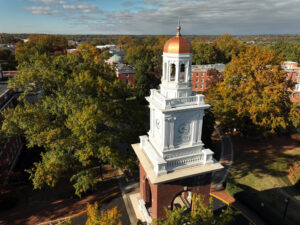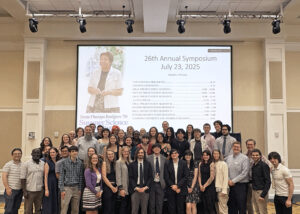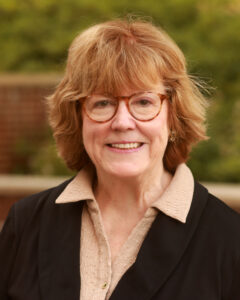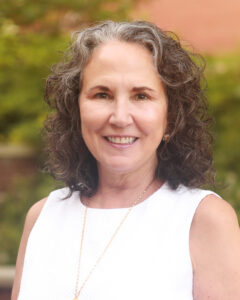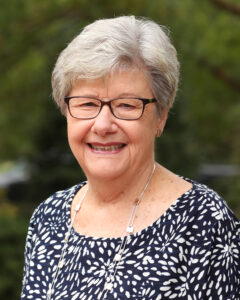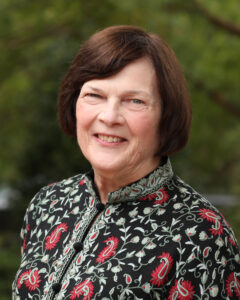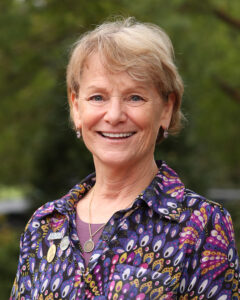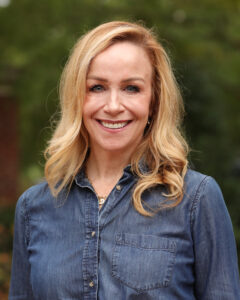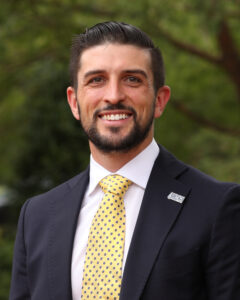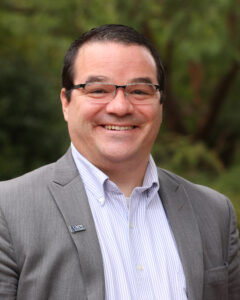As founding coach of the University of Mary Washington men’s soccer team, Roy Gordon led his players to win after win and multiple championships throughout his 34-year career.
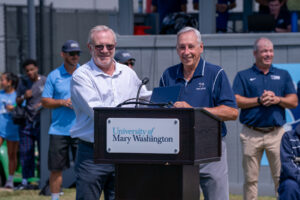
Along the way, Gordon coached the Eagles to nine NCAA tournament appearances and eight Capital Athletic Conference (CAC) titles and amassed a record 432 wins – a feat that earned him a spot among NCAA Division III coaching elite. He also oversaw the relocation in the 1980s of Mary Washington’s home field to the Battlefield Athletic Complex, which hosted the NCAA Division III national championship in 1997.
Joined by his family, friends, former colleagues, current coaching staff, university administrators, and players from the past and present, Gordon scored yet another accolade on Sunday, as the University named the championship soccer field in his honor. The initiative, spearheaded by decades of alumni student-athletes dedicated to the game, culminated in a ceremony held between the women’s and men’s soccer matches, when UMW unveiled a scoreboard overlooking the Roy Gordon Field.
“Mary Washington has been an incredible place for me to have worked,” said Gordon, who was inducted into the UMW Athletics Hall of Fame after his retirement in 2011.
Assistant Athletic Director of Communications Clint Often, who read the resolution approved by the UMW Board of Visitors in the spring, called him “one of the most important figures in Mary Washington athletic history.”
Gordon thanked wife Terrie and their family, President Troy Paino, Director of Athletics Patrick Catullo ’95, and Vice President for Advancement and Alumni Engagement Katie Turcotte, who also serves as the UMW Foundation executive director, as well as Mary Washington donors. He also recognized Director of Athletics Emeritus Ed Hegmann, a graduate-school classmate who recruited him to work at Mary Washington in 1977. They trusted one another, Coach Gordon said, and that turned their friendship into a thriving working relationship.
“Having success on the field and getting wins was always a motivating factor, but for 34 years, my goal was to provide a quality experience for my student-athletes,” he said.


Over the past two years, a committed group of former players has worked toward the same goal, in collaboration with UMW Athletics and the Office of University Advancement and Alumni Engagement. Together, they’ve helped men’s and women’s soccer supporters, including alumni, parents, and friends, contribute nearly $386,000 in gifts and pledges, combined with an earlier fundraising initiative that established a $95,000 endowment for men’s soccer in Gordon’s honor.
“Coach Gordon knew how to provide leadership and helped us forge relationships with each other,” said Scott Karr, who led the charge with former teammates and fellow 1990 grads Dave Lausten and Ranjit Sidhu. “He was disciplined and worked us hard but taught us how to be a team.”
Gordon was named Coach of the Year by the Capital Athletic Conference, National Soccer Coaches Association of America (NSCAA), and the Virginia State College Division on multiple occasions. In 2007, he became one of only eight head coaches in Division III history to surpass 400 career wins. He received NSCAA’s prestigious Honor Award in 2009 and was inducted into its Hall of Fame in 2023.
UMW’s current athletic coaches have carried the torch, building nationally competitive teams, making ongoing enhancements to the University’s athletic facilities, and helping recruit talented student-athletes while bringing larger crowds to games.
“How many hours did we spend on these fields?” said Sidhu, who helped encourage UMW soccer supporters to contribute toward the renovations and facilities upgrades. “It was such a formative time in our lives.”
A Fredericksburg resident, Lausten said he feels pride when he watches UMW’s soccer teams compete. “It’s a reflection on us and those who came before us who helped build this program.”
Catullo hopes to maintain the momentum, both on the field and through donor support, aiming to reach a $500,000 goal. “These improvements will elevate the program, provide top-tier facilities, and attract the best future talent,” he said in a media release last spring. “Additionally, the success of this project will help drive future fundraising efforts across other UMW Athletic facilities.”
LEARN MORE about the project and make your gift electronically. The Office of University Advancement can explain customized giving options. Call 540-654-1024 or email advance@umw.edu for more information.
– Article written by Assistant Director of Advancement Communications Jill Graziano Laiacona ’04


